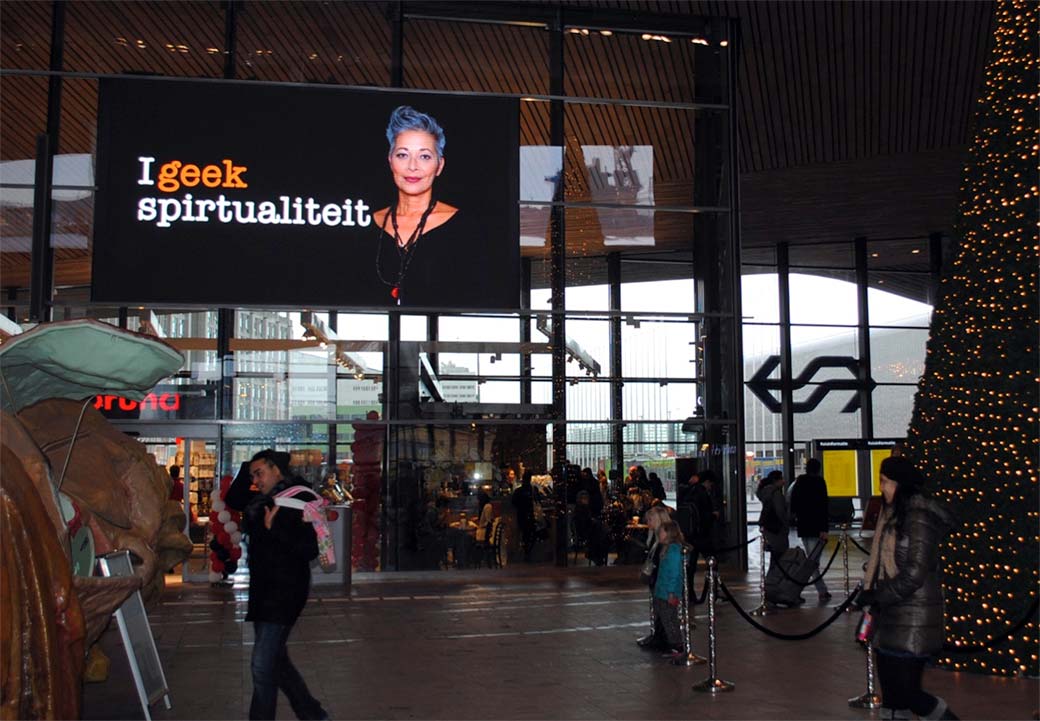Year in Review
In FY14, we advanced our commitment to our public purpose. We conducted original research to explore the important trends that will impact libraries in the future. We improved the ways by which libraries can share data, resources and services. And, we helped member libraries magnify their collective visibility and relevance.
Explore
the trends that
shape our future
To meet the demands of today’s information consumers, librarians must continually look forward, monitoring trends and user perceptions.
In FY14, we tracked growing support for system-wide library programs and services. We saw that changes in learning and education are driving libraries to rethink roles and priorities, both in terms of managing data and user behavior. We explored the unique role libraries can play in their institutions and communities by preserving digital heritage and maintaining the scholarly record. These trends impact our community today and lead us to future opportunities.
“At OCLC, we do research that helps to solve the problems and challenges that are too large or too complex for any one library or institution to address.”
Lynn Silipigni Connaway, Ph.D., Senior Research Scientist, OCLC Research
Understanding the system-wide library
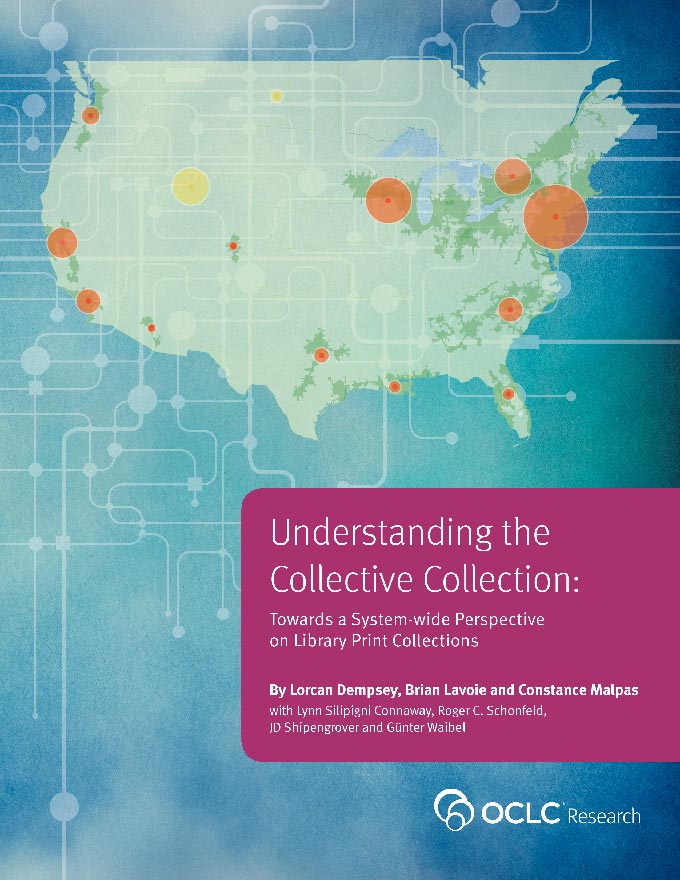
We are seeing major changes in how librarians think about collections in a networked, Web environment. Understanding the Collective Collection: Towards a System-wide Perspective on Library Print Collections has changed the way that libraries think about collections and the scale at which they must organize to deliver new and traditional services. As an acknowledgment to the importance of this work, OCLC Research was awarded the ALCTS Presidential Citation for outstanding service.
“Understanding the Collective Collection will long stand as a landmark work in the field.”
Presidential Citation, Association for Library Collections & Technical Services (ALCTS)
Right-scaling Stewardship: A Multi-scale Perspective on Cooperative Print Management explores the shift from traditional, institution-scale stewardship of library collections toward newer group-scale approaches. It presents the benefits and tradeoffs of “above the institution” strategies for managing monographic collections. OCLC Research, in partnership with the Committee on Institutional Cooperation (CIC), The Ohio State University Libraries and OhioLINK, hosted a symposium that featured panel discussions and keynote presentations about this topic. More than 100 librarians attended the symposium. The report and the event generated community conversation about shared print management.
“The data collection will be a basis for changed thinking.”
Wes Boomgaarden, Preservation Officer (Retired), The Ohio State University Libraries, USA

Redefining learning and education
A new future is coming to education. Online shopping, searching and social networks came first—education is next. OCLC’s newest user perceptions study, At a Tipping Point: Education, Learning and Libraries, explores how empowered consumers fueled by economic incentives use online learning platforms and MOOCs to set new expectations for education—and for libraries. The report explores the behaviors, perceptions and motivations of online learners: how they evaluate the cost/value trade-offs of higher education, how they use and succeed with online education—and how they use and perceive the library.

Starting the data management policy conversation
Starting the Conversation: University-wide Research Data Management Policy suggests that library directors should initiate a conversation among stakeholders to get buy-in for a proactive, high-level, responsible data planning and management policy. The report addresses the various topics that should be discussed and includes a checklist of issues to help the discussion result in a supportable and sustainable policy.
“It is great to see the momentum building from this call for action and the conversations that have started as a result.”
Donna McRostie, Associate Director Research, The University of Melbourne, Australia
Reordering the Five Laws based on user behavior in the digital age
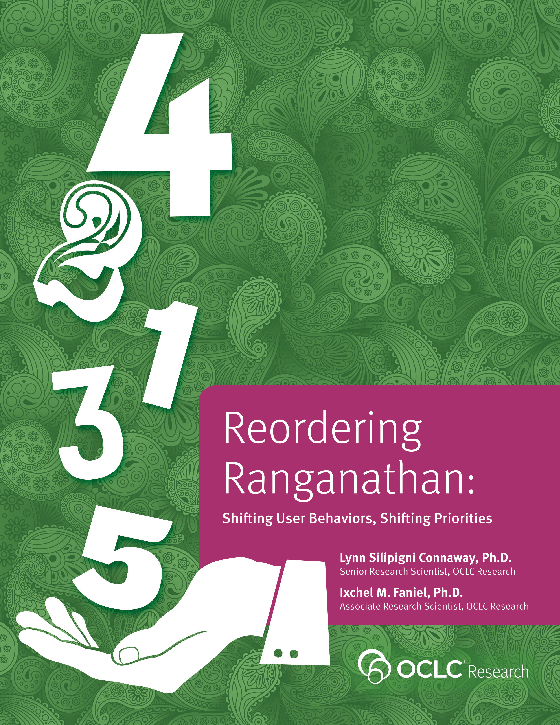
Shiyali Ramamrita Ranganathan’s Five Laws of Library Science have provided powerful guidance for librarians since they were first published in 1931. As a framework for evaluating library programs, policies and strategies, there is probably not a single document as widely known, respected and referenced, even today. But with all the change that has occurred over 80 years, are the laws still relevant? They are, but in a new context and a new order. Reordering Ranganathan suggests that Ranganathan’s Five Laws can be reinterpreted to reflect today’s library resources and services, as well as the behaviors that people demonstrate when engaging with them.
“Today’s library users challenge librarians to move from the simple declaration of ‘save the time of the reader’; meeting today’s users’ needs requires embedding library systems and services into their existing workflows.”
Reordering Ranganathan: Shifting User Behaviors, Shifting Priorities
Preserving our digital heritage
National libraries, government archives, broadcasting archives, scientific data archives and university repositories are all investing substantial resources in the creation and maintenance of metadata for the curation and long-term preservation of their digital collections. Preservation Health Check: Monitoring Threats to Digital Repository Content suggests that standardized preservation metadata can be used to support the day-to-day operational needs of digital repositories.
“I found your story very clear...it inspired me to set up our own metadata policy.”
Liesbeth van Wijk, Systems Librarian, Leiden University, The Netherlands
Organizing discussions about the evolving scholarly record
A confluence of trends is accelerating changes to the scholarly record’s content and stakeholder roles. The Evolving Scholarly Record provides a framework to help cultivate the shared understanding and relationships needed to identify, collect and make accessible the range of materials in the evolving scholarly record.
“The portion of the scholarly record that a single institution can hope to collect, store and offer locally is getting smaller and smaller.”
The Evolving Scholarly Record
Magnify
the impact
of libraries
Shining a light on the unique and important work that libraries do was a critical part of advancing together in FY14.
Programs like Geek the Library have been shown to help build support for funding, while the Outside the Box initiative gives libraries a chance to do more community outreach. Helping users navigate new healthcare laws drew librarians into challenging educational situations that they met cooperatively through programs such as Health Happens in Libraries. For a different kind of library visibility, our linked data initiatives put library metadata into exciting, new mainstream workflows, which contributed to additional partnership opportunities, leveraging the combined influence of all OCLC member libraries.
Building library support

We expanded the Geek the Library community awareness campaign to an additional 1,000 libraries in the U.S. and introduced pilot programs in Austria, Germany, Switzerland and the Netherlands. Supported by the Bill & Melinda Gates Foundation, this national advocacy program increases attention on the need for funding public libraries. Approximately 2,000 libraries in five countries, including 48 U.S. states, will participate in this program before it concludes in 2015.
Enhancing the community

OCLC signed its first public/private partnership with Redbox in 2013 to provide libraries with funding to create community-led outreach programming. Following the successful pilot project, 22 new placemaking libraries and 19 movie night libraries are participating in the 2014 Outside the Box program. Working with OCLC and the Project for Public Spaces, these libraries are bringing their communities together by hosting shared entertainment events that apply placemaking principles.
Expanding user services

Through a grant from the Institute of Museum and Library Services (IMLS), WebJunction teamed with ZeroDivide to create resources, deliver webinars and share examples of how state and public libraries are providing timely health information to their patrons. In the coming year, the program will expand its focus to how libraries can grow their health and wellness services to their communities.
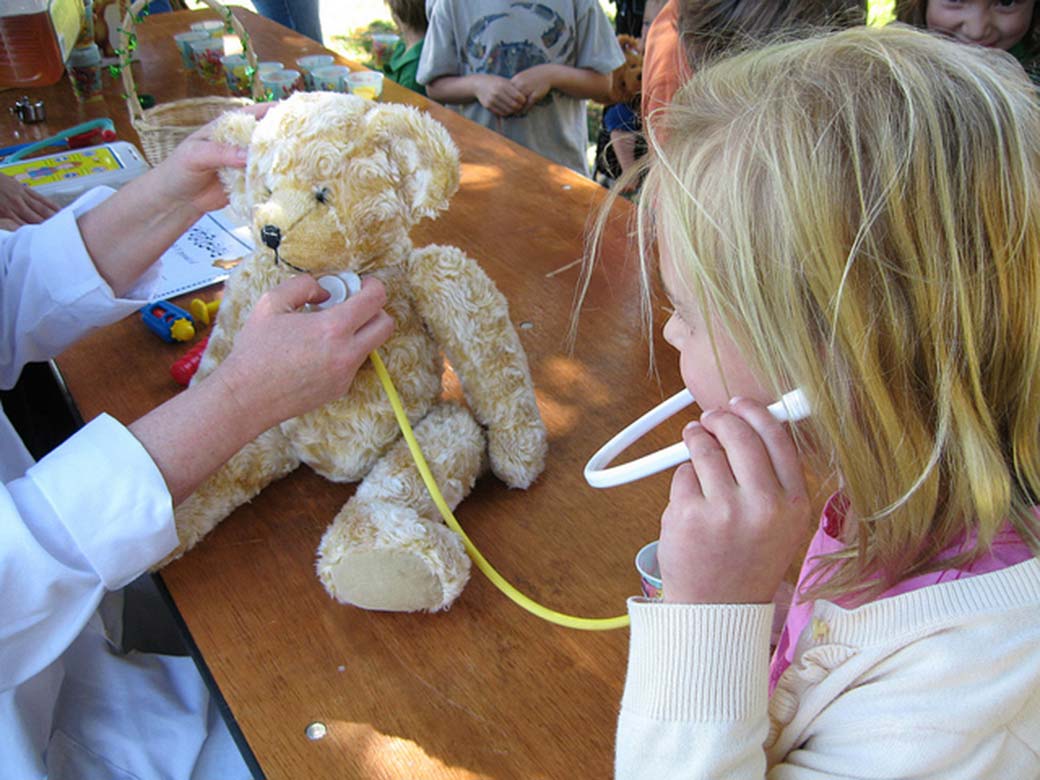
OCLC’s first advocacy and large-scale library development program, WebJunction continues to be the place where the library profession gathers to build the knowledge, skills and support needed to power relevant, vibrant libraries. In FY14, this open, online learning community had 621,000 visits to WebJunction.org, and saw 23,000 registrations for webinars and 9,400 enrollments in courses.
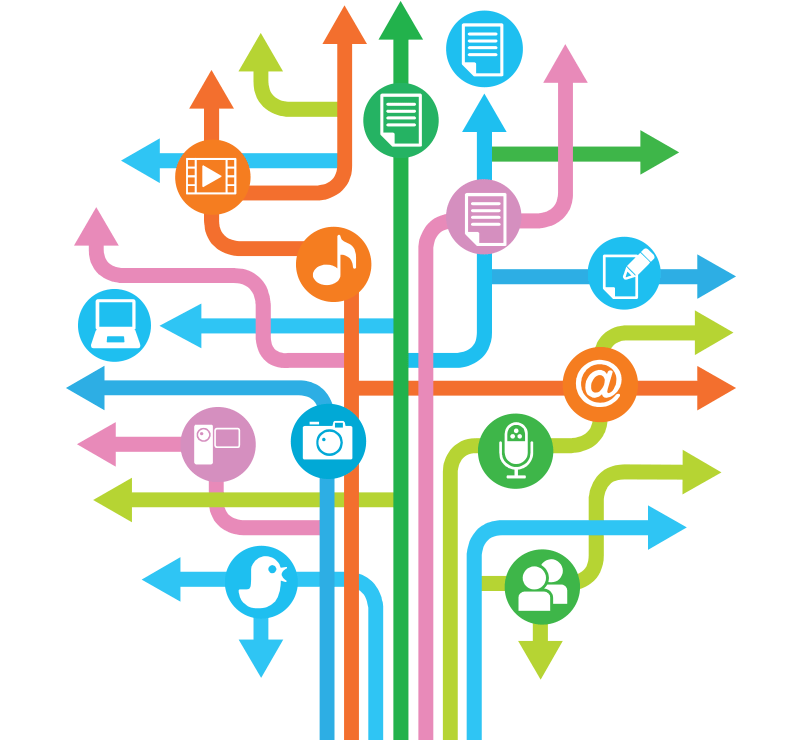
Increasing online visibility: linked data
OCLC helps magnify the work of libraries by exposing library collections to the wider Web community. In June 2014, OCLC made 197 million bibliographic work descriptions—WorldCat Works—available as linked data, a format native to the Web that will improve discovery of library collections. These collections are more easily discoverable through websites and services that library users visit daily, such as Google, Wikipedia and social networks.
Working together: partnerships
One of the most significant ways that OCLC helps magnify the cooperative work of libraries is by leveraging their collective influence. As a group, OCLC members can act together and attract important partners to the table in order to better serve the interests of libraries and their users.
More than 170 publishers and aggregators make metadata, tables of contents, summaries or reviews about their electronic, digital and print resources available through WorldCat, the WorldCat knowledge base and WorldShare applications. OCLC also works with companies that build library services, helping to integrate data and activities in ways that enable greater choice, integration and innovation. And partnerships with search engines, consumer Web service providers and learning management systems make the collective collection of libraries more visible on the Internet to people everywhere.
In FY14, new collaborations brought new visibility to member libraries on the Web, and automation to e-book collection management. Forty-four new agreements with publishers added valuable electronic collections to WorldCat.
Content partners
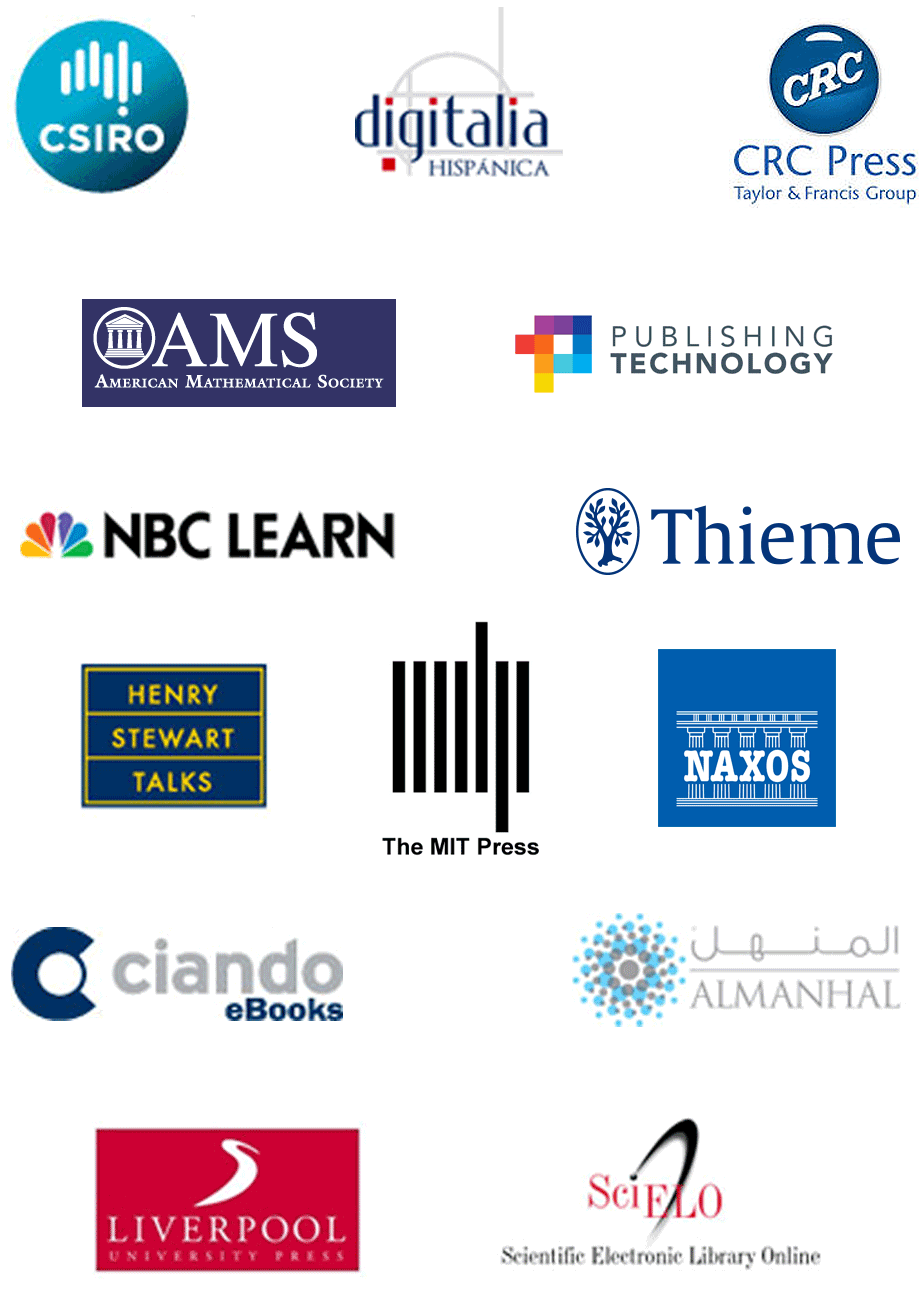
Application partners
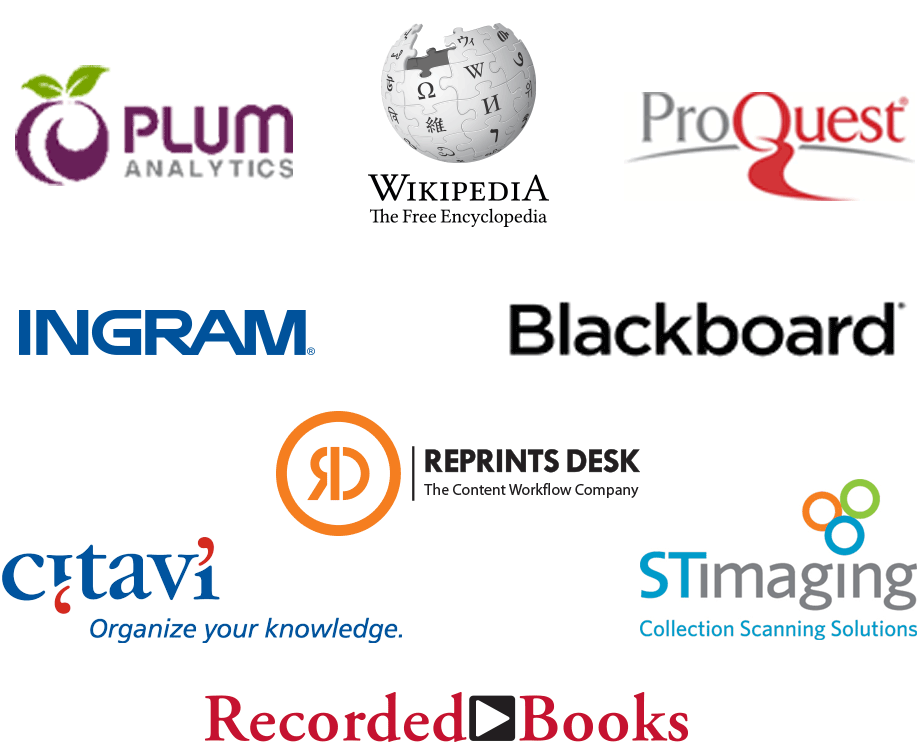
Consumer service partners

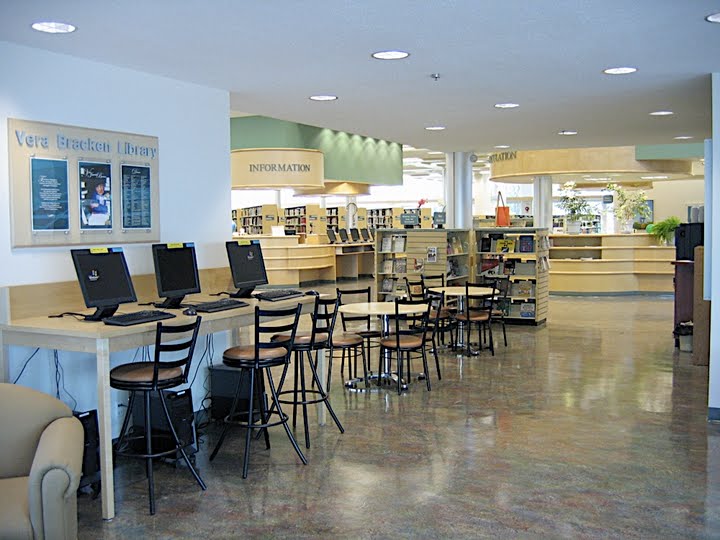


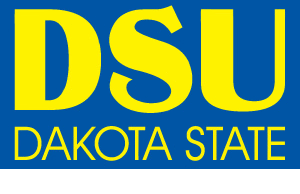
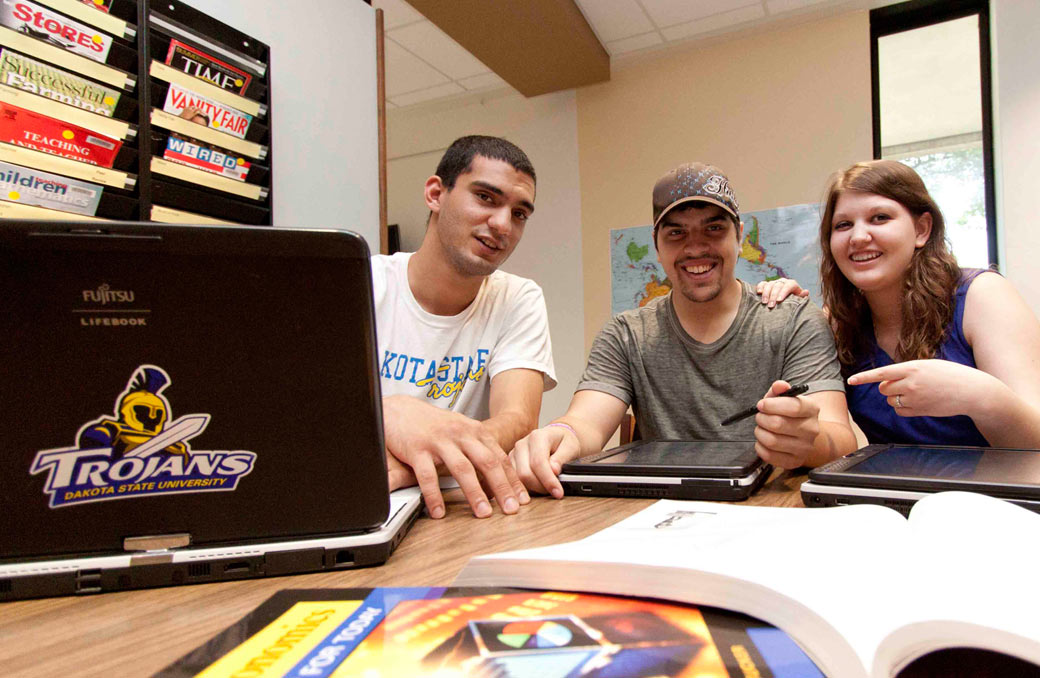


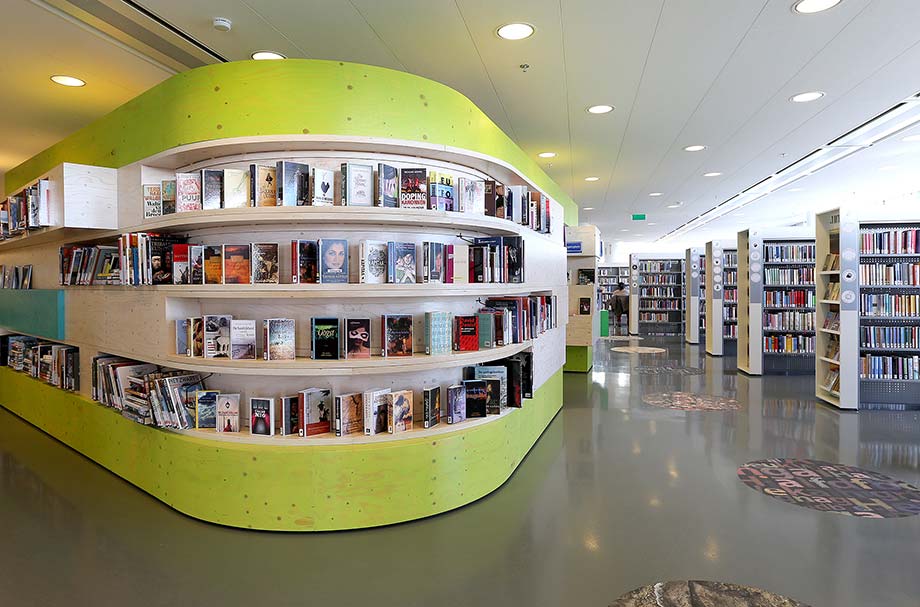 Public Library Nieuwegein, the Netherlands
Public Library Nieuwegein, the Netherlands
